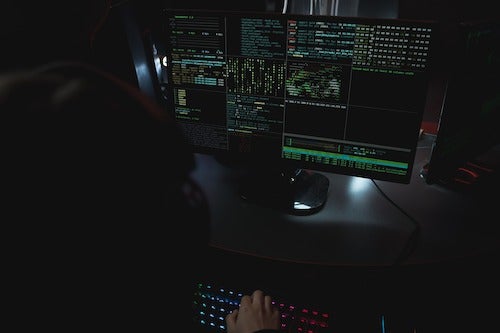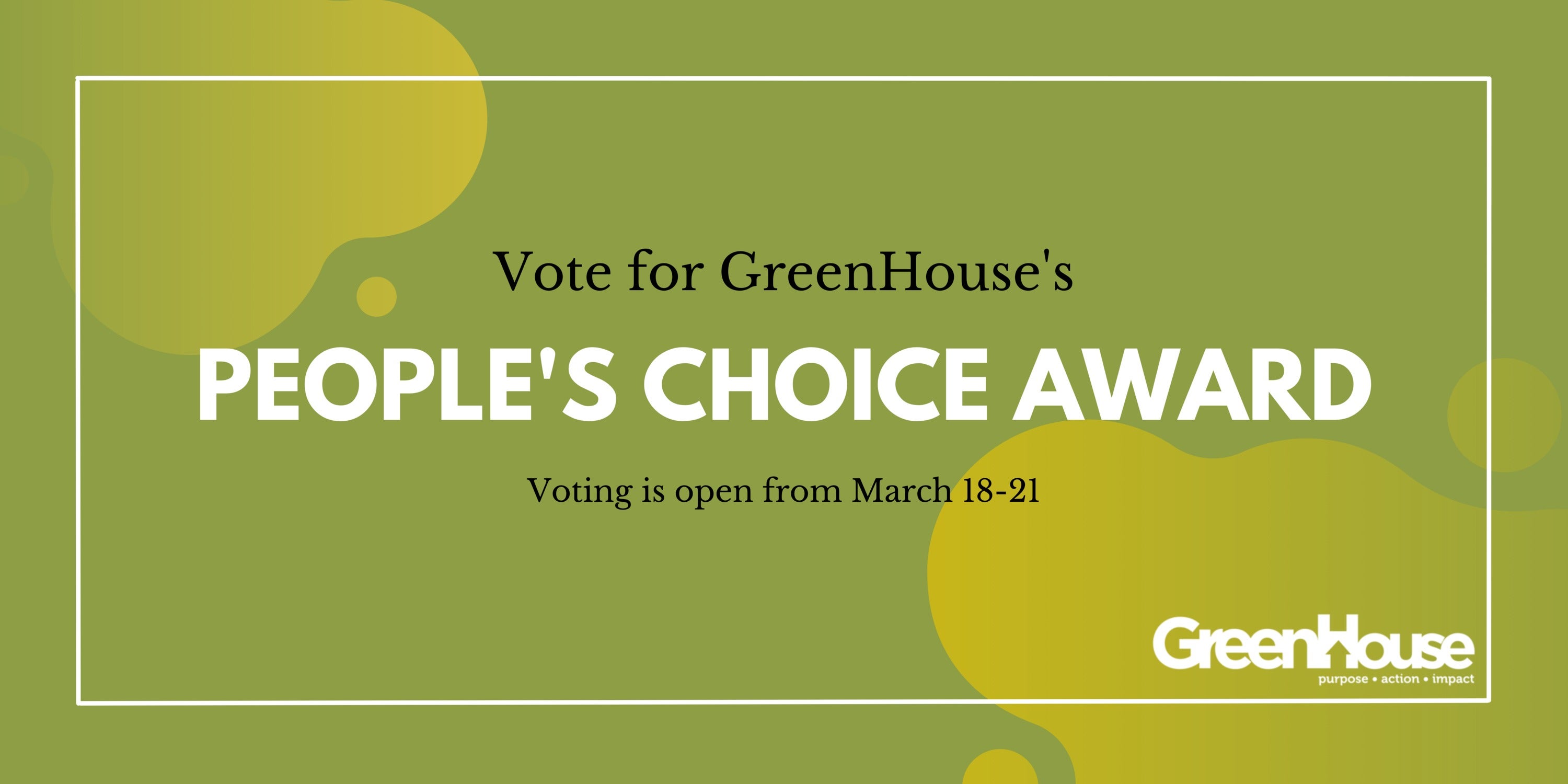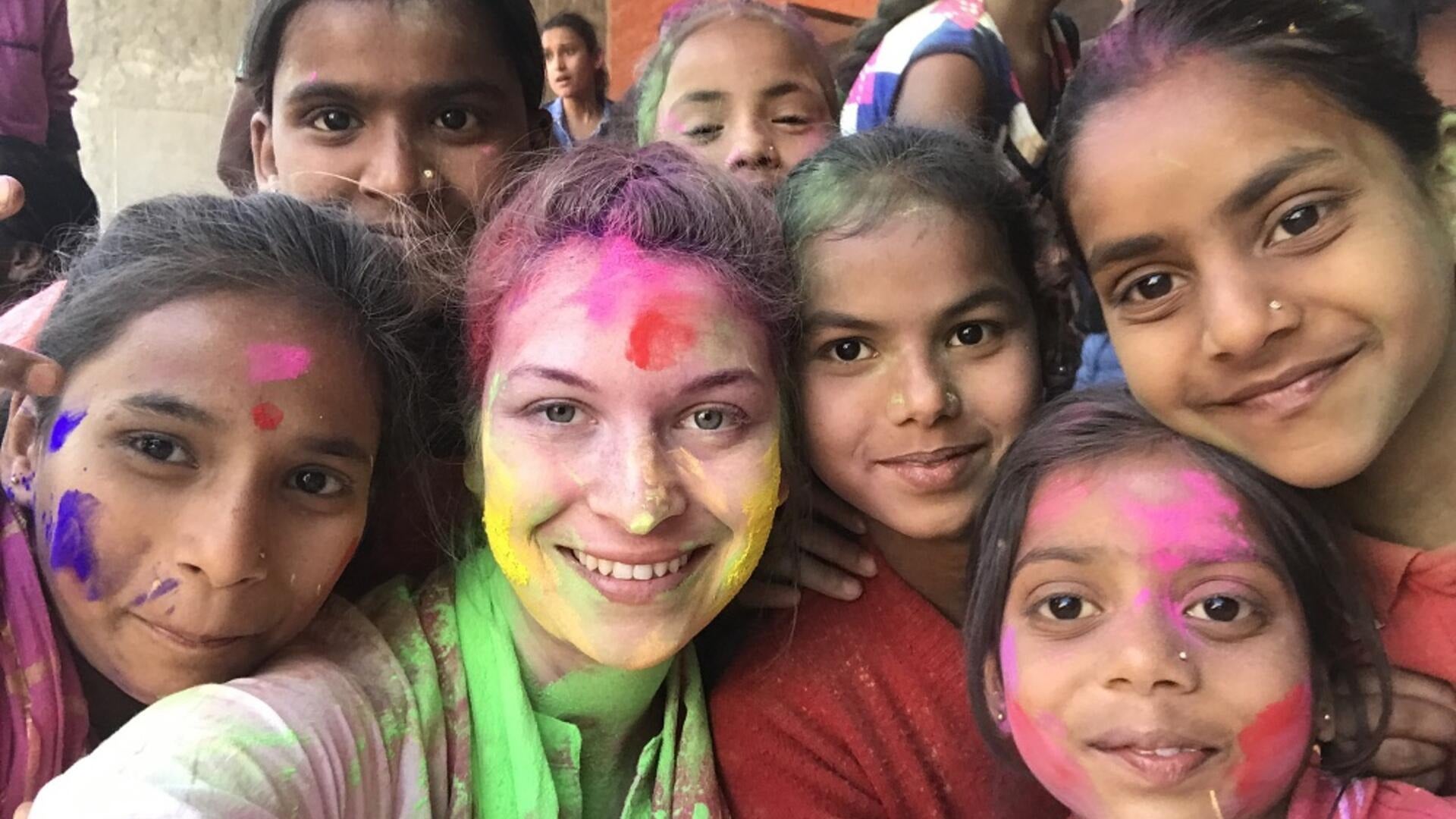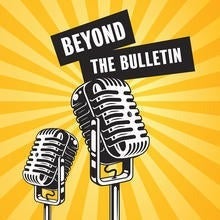Editor:
Brandon Sweet
University Communications
bulletin@uwaterloo.ca
Q and A with the experts: The cyber threat to Ukraine's history

The University of Waterloo has a number of experts available to speak about the issues of the day.
Russian President Vladimir Putin has publicly claimed Ukraine is not a country. History says otherwise. Ian Milligan is an associate professor at the University of Waterloo whose research focuses on ways historians can use web archives, as well as the impact of digital sources on historical practice. He weighs in on Russia trying to erase Ukrainian history and what Ukraine can do to stop it.
Why is data a potential casualty of this invasion?
War is bad for information preservation. This is often just a casualty of conflict, affecting digital and physical information alike. The destruction of the Ivankiv museum near Kyiv is an example of this, where priceless paintings and artifacts were destroyed. Servers are in some cases even more vulnerable: power loss, connectivity loss and beyond, and the information can disappear from the Internet in an instant. Without proper backups, or even if off-site backups are somewhere else in the country, you can imagine them being lost, given the scale of the Ukrainian conflict. The physicality of data can never be forgotten. The cloud seems like a magical thing, but of course, the cloud is just a bunch of servers.
Sometimes there is the deliberate deletion of information in a conflict. During the invasion of the Crimea in 2014, for example, gunmen seized the Crimean Center for Investigative Journalism's offices. Staff were worried about the integrity of their website and contacted staff at the Internet Archive to say that they needed their material downloaded immediately. Within hours, copies were being saved by the Internet Archive.
Finally, there are sometimes also individuals who want to delete evidence of wrongdoing in a conflict zone. Perhaps the most famous example of this was the shoot-down of Malaysia Airlines Flight 17 in 2014. Shortly after its shoot-down, but before the crash was public knowledge, militants claimed they had successfully shot down a large plane. While they quickly moved to delete this post and evidence of it, the Internet Archive had already archived it.
What type of data is at risk?
Everything. This isn't hyperbole. Newspaper archives, personal webpages, government webpages, and beyond. Digital infrastructure is fragile.
What are the short- and long-term implications of data being missing or gone?
Short term, there are implications around our understanding of what's going on in Ukraine. Local journalists on the ground, newspapers, all of this provide crucial corridors of information to those of us who are not in Ukraine. There is also an ongoing propaganda battle being fought around the legitimacy of the Ukrainian government and/or the legitimacy of the Russian invasion, and taking this sort of information offline has dramatic implications for the global understanding of this context.
Long term, this all forms the historical record that in 20, 30, 40 years we will use to try to understand what happened. For example, social historians may use web data to understand what it was like living in Kyiv or Kharkiv during the onslaught or the trauma of fleeing one's home and family in such a terrible conflict. Political historians may want to use official digital records to explore policy decisions. Political scientists, economists, sociologists and others will use this data to answer various pressing research questions. While there have been many wars and conflicts in the digital age, Ukraine is developed and connected enough that the digital record left behind by the conflict will be exhaustive in nature.
How would they go about re-assembling this data if Russia leaves Ukraine?
Reconstructing digital data that's been archived outside of the country is difficult. Some of the data may have been saved, but it would be held by institutions such as the Internet Archive. But those links are permanent and long-lasting, and I suspect that there might be opportunities to work with cultural organizations to repatriate the data and bring it back home. But, without a doubt, there is a long road ahead.
Ian Milligan is Associate Vice-President, Research Oversight and Analysis in the University of Waterloo's Office of Research. He is also an Associate Professor in the Department of History. In his service role, Milligan provides campus leadership for research oversight and compliance, as well as helps to coordinate data management strategies and bibliometrics. Milligan's primary research focus is on how historians can use web archives, as well as the impact of digital sources on historical practice more generally.
Student Course Perception survey launches
By Dr. Sonya Buffone, Director of Teaching Assessment Processes.
The new Student Course Perception survey (SCP) is launching this term. Members of the Waterloo community have been hard at work to revamp the system of collecting student input since 2014, as part of our response to concerns about equity and efficacy with the existing surveys and their use. The SCP will be one instrument in a holistic system of teaching assessment that is currently in development; further information about other instruments (peer review and teaching dossiers will be released later this year).
Resources
Visit the new Teaching Assessment Processes website for:
- Frequently asked questions;
- The core survey questions;
- Resources for instructors reviewing their own SCP scores; and
- Resources for academic administrators reviewing SCP scores
The Centre for Teaching Excellence has also developed some guidelines for instructors: Teaching Effectiveness & the Student Course Perceptions Survey
Your input
This is the first step in a massive institutional culture shift that will require ongoing consultation and communication. Later this year, instructors and academic administrators (e.g., department Chairs) will be invited to share concerns and challenges via a survey. Your feedback will be critical to fine-tuning processes and resources.
Important concerns
We know that there continue to be concerns around a number of things, including biases in SCP data. We will be able to assess associations between SCP scores and race this term, using data now collected by the university, and will be looking at this analysis across a couple of terms. We will also continue to assess associations with other variables, like gender.
Contact Dr. Sonya Buffone, Director, Teaching Assessment Processes with any questions or concerns.
World Water Day lecture looks at the legacy of environmental racism

A message from the Water Institute.
Join the Water Institute on March 22, for United Nations World Water Day, celebrating water and raising awareness of the 2 billion people currently living without access to safe water. A core focus of World Water Day is to inspire action towards Sustainable Development Goal (SDG) 6: water and sanitation for all by 2030.
One of this year’s events will feature presentations from two high-profile advocates who are leading community-level resistance movements against environmental racism followed by an interactive, student-led discussion.
Dr. Ingrid Waldron is the 2022 Water Institute RBC Distinguished Lecturer, HOPE Chair in Peace and Health at McMaster University and author/producer of the book and Netflix documentary There’s Something in the Water. Dr. Waldron will examine the legacy of environmental racism in Canada by highlighting cases in Indigenous and Black communities, the grassroots mobilization and resistance activities communities have engaged in, and the recent "wins" that have resulted from these efforts.
Monica Lewis-Patrick is the 2022 University of Waterloo Jarislowsky Fellow, co-founder of We the People of Detroit, and known in the environmental justice community as The Water Warrior. Ms. Lewis-Patrick will describe how five Black women leaders in Detroit developed a network of volunteers to fight austerity measures and present a critical counter narrative to show the socio- economic consequences of these policies on access to clean water in Detroit and across the USA.
Register for World Water Day celebrations on the event website.
Voting now open for GreenHouse People's Choice Awards

A message from St. Paul's GreenHouse.
Each term, the GreenHouse social impact incubator at St. Paul’s University College hosts its Social Impact Showcase. It celebrates the amazing work GreenHouse students accomplish through their journeys of social innovation and entrepreneurship, while also providing an opportunity for students to acquire seed funding for their ideas. This term, GreenHouse will also reach a significant milestone as they celebrate the 25th Social Impact Showcase
While the initial adjudication decisions have already been made, there is still time to vote for your favourite social venture in the People’s Choice Awards.
The People’s Choice Award will be given to the social venture with the most online votes, alongside an additional $1,000 in funding. Some of the problems the 10 ventures pitching this term aim to address include: encouraging Indigenous youth to become leaders in climate justice, digital volunteer mentorship and community growth tools, creating and improving employment opportunities for marginalized youth in Waterloo Region and helping individuals reduce their environmental footprint.
Voting opens today, March 18, and closes Monday, March 21at 11:59 p.m. The winners of the People’s Choice Awards will be announced on Thursday, March 24 at 5:00 p.m. via the GreenHouse Instagram account and in person at the Social Impact Showcase.
Learn more about the 10 ventures and vote for GreenHouse’s People’s Choice Awards today.
Friday's notes

Waterloo alumnus Bridget King celebrated Holi with children during a co-op term in Chandigarh, India. Read her story, "The Experience of a Lifetime," on Waterloo News.
Today marks the Hindu festival Holi, also known as the festival of colours, which is celebrated mainly on the Indian subcontinent and around the world in the South Asian diaspora. Holi celebrates the start of the spring season and is known for large public gatherings involving coloured paint powder and other traditions. There will be a colour ceremony at Kitchener's Shri Ram Dham temple on Sunday, March 20 from 11:00 a.m. to 1:30 p.m.
Sunday, March 20 also marks the holiday Nowruz, the start of the Persian New Year. One of the world's oldest holidays, Nowruz, which means "new day," is celebrated around the time of the spring equinox.
The School of Accounting & Finance is hosting two Master of Taxation (MTax) information sessions today and tomorrow. The first is a virtual information session at 1:00 p.m. where you can learn about the MTax advantage, and the second is being held in-person on Saturday, March 19 at 10:00 a.m. in the MTax Centre in downtown Toronto. To register visit www.mtax.ca.
Beyond the Bulletin Episode 120

The latest episode of the Beyond the Bulletin podcast is now live. Rob Danisch, a professor in communication arts, discusses misinformation, disinformation, and the way the information we share online and the language we use could have negative implications for our society. Waterloo’s staff, students and faculty come together to facilitate a broad range of supports for people affected by the attack on Ukraine. Convocation is back to in-person ceremonies. And the Joyce Family Foundation gives $2 million in student awards.
Link of the day
130 years ago: Lord Stanley's Cup
When and Where to get support
Students can visit the Student Success Office online for supports including academic development, international student resources, immigration consulting, leadership development, exchange and study abroad, and opportunities to get involved.
Instructors looking for targeted support for developing online components for blended learning courses, transitioning remote to fully online courses, revising current online courses, and more please visit Agile Development | Centre for Extended Learning | University of Waterloo (uwaterloo.ca).
Instructors can visit the Keep Learning website to get support on adapting their teaching and learning plans for an online environment.
Course templates are available within your course in LEARN to help you build and edit your content and assignment pages quickly.
The following workshops, webinars, and events are offered by the KL team (CTE, CEL, ITMS, LIB):
- Independent Remote Course Design Essentials, self-directed, continuous self-enrollment course in LEARN.
- Independent Blended Course Design (iBlend), self-directed, ongoing
- Copyright Overview for Waterloo Instructors and Staff - self-directed, continuous self-enrollment course in LEARN.
Supports are available for employees returning to campus. Visit IST’s Hybrid Work and Technology guidelines and workplace protocols to assist with the transition.
The Writing and Communication Centre has virtual services and programs to help undergrads, grad students, postdocs and faculty members with academic writing.
- Meet with writing advisors in one-to-one appointments to brainstorm, draft, revise, and polish. No time for an appointment? Try email tutoring for undergrads.
- Beat isolation and make writing progress at weekly Virtual Writing Cafés for grad students and faculty or PJ-Friendly Writing Groups for Undergrads.
- Take an online workshop or apply to our popular Dissertation Boot Camp program.
- Faculty can request custom in-class workshops for their courses, or the WCC can facilitate any existing workshops for student groups.
- Course-integrated support available. Attention faculty and instructors: The application form for Writing and Communication Centre course-integrated support is now available online. We offer five unique support streams for your courses including synchronous and asynchronous workshops and monitored discussion boards.
Co-op students can get help finding a job and find supports to successfully work remotely, develop new skills, access wellness and career information, and contact a co-op or career advisor.
The Centre for Career Action (CCA) has virtual services and programs to support undergrads, grad students, postdocs, alumni and employees in figuring out what they value, what they’re good at, and how to access meaningful work, co-op, volunteer, or graduate/professional school opportunities. Questions about CCA's services? Live chat, call 519-888-4047, or stop by our front desk in the Tatham Centre between 8:30 a.m. and 4:30 p.m. EST, Monday to Friday.
Drop-in to Warrior Virtual Study Halls on Wednesdays from 5:30 p.m. to 7:00 p.m. Come together in this virtual space to set goals and work independently or in groups each week.
Renison's English Language Institute continues to offer virtual events and workshops to help students practice their English language skills.
If you feel overwhelmed or anxious and need to talk to somebody, please contact the University’s Campus Wellness services, either Health Services or Counselling Services. You can also contact the University's Centre for Mental Health Research and Treatment. Good2Talk is a post-secondary student helpline available to all students.
The Library is open with expanded hours for access to book stacks, drop-in individual study space, bookable group study rooms, drop-in access to computers and printers, book pick-up services and IST Help Desk support. Librarian consultations, Special Collections & Archives and the Geospatial Centre are available by appointment. Full details on current services and hours are available on the Library’s COVID-19 Update webpage.
The Faculty Association of the University of Waterloo (FAUW) continues to advocate for its members. Check out the FAUW blog for more information.
The University of Waterloo Staff Association (UWSA) continues to advocate for its members. Check out the UWSA blog for more information.
The Sexual Violence Prevention and Response Office (SVPRO) supports all members of the University of Waterloo campus community who have experienced, or been impacted, by sexual violence. This includes all students, staff, faculty and visitors on the main campus, the satellite campuses, and at the affiliated and federated Waterloo Institutes and Colleges. For support, email: svpro@uwaterloo.ca or visit the SVPRO website.
The Office of Indigenous Relations is a central hub that provides guidance, support, and resources to all Indigenous and non-Indigenous campus community members and oversees the University's Indigenization strategy.
The Waterloo Indigenous Student Centre, based at St. Paul’s University College, provides support and resources for Indigenous students, and educational outreach programs for the broader community, including lectures, and events.
WUSA supports for students:
Peer support - MATES, Glow Centre, RAISE, Women’s Centre - Visit https://wusa.ca/peersupport to book an appointment either in person or online for the Fall term.
Food Support Service food hampers are currently available from the Turnkey Desk 24/7 in the Student Life Centre. Drop off locations are also open again in SLC, DC, DP, SCH and all residences.
Co-op Connection all available online. Check https://wusa.ca for more details.
Centre for Academic Policy Support - CAPS is here to assist Waterloo undergraduates throughout their experience in navigating academic policy in the instances of filing petitions, grievances and appeals. Please contact them at caps@wusa.ca. More information is available.
WUSA Student Legal Protection Program- Seeking legal counsel can be intimidating, especially if it’s your first time facing a legal issue. The legal assistance helpline provides quick access to legal advice in any area of law, including criminal. Just call 1-833-202-4571.
Empower Me is a confidential mental health and wellness service that connects students with qualified counsellors 24/7. They can be reached at 1-833-628-5589.
GSA-UW supports for graduate students:
The Graduate Student Association (GSA-UW) supports students’ academic and social experience and promotes their well-being.
Advising and Support - The GSA advises graduate students experiencing challenges and can help with navigating university policies & filing a grievance, appeal, or petition.
Mental Health covered by the Health Plan - The GSA Health Plan now has an 80 per cent coverage rate (up to $800/year) for Mental Health Practitioners. Your plan includes coverage for psychologists, registered social workers, psychotherapists, and clinical counselors.
Dental Care - The GSA Dental Plan covers 60 to 70 per cent of your dental costs and by visiting dental professionals who are members of the Studentcare Networks, you can receive an additional 20 to 30 per cent coverage.
Student Legal Protection Program - Your GSA fees give you access to unlimited legal advice, accessible via a toll-free helpline: +1-833-202-4571. This advice covers topics including housing disputes, employment disputes, and disputes with an academic institution.
The Graduate House: Open Monday to Friday 11:30 a.m. to 6:00 p.m. We’re open to all students, faculty, staff, and community members. The Graduate House is a community space run by the GSA-UW. Vaccination Records and Government ID continue to be required for all dine-in guests. Graduate students who paid their fees can get discounts and free coffee.
When and Where (but mostly when)
Warriors vs. Laurier Blood Donation Battle. Join our “Waterloo Warriors” team on the Blood.ca website or app. #ItsInYouToGive
Half Price Fitness Memberships and Rock Climbing Memberships. Only $25 for the remainder of the term. Purchase your membership now.
KIX 2022: Knowledge Integration eXhibition, Monday, March 14 to Friday, March 18, 11:00 a.m. to 6:00 p.m., and Saturday, March 19, 11:00 a.m. to 4:00 p.m., St. Jerome's University.
Master of Taxation, Virtual Information Session, Friday March 18, 1:00 p.m. Learn more about the MTax advantage.To register visit www.mtax.ca.
Virtual Writing Café, Friday, March 18, 2:00 p.m.
Master of Taxation, In-Person Information Session, Saturday March 19, 10:00 a.m., in-person at the MTax Centre in downtown Toronto. To register visit, www.mtax.ca.
Shohini Ghose – A framework for promoting excellence in science through Inclusion, Diversity, Equity and Accessibility, Monday, March 21, 2:00 p.m. to 3:00 p.m.
World Water Day 2022: A Cross-Country Checkup on Canada’s Groundwater: Perspectives on the Future of one of Canada’s most Valuable Resources, Tuesday, March 22, 1:00 p.m. to 2:30 p.m.
GEDI Exchange Webinar - A 30 Minute Exchange with Hyivy and Cosm Medical, Tuesday March 22, 1:00 p.m.
World Water Day 2022: The Legacy of Environmental Racism in North America: Perspectives from Canada and the United States, Tuesday, March 22, 4:00 p.m. to 5:30 p.m.